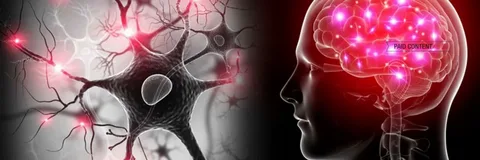In our fast-paced world, mental clarity is more important than ever. Whether you’re a student facing a mountain of assignments, a professional aiming for peak performance, or someone who simply wants to stay sharp, the quest for better cognitive function is universal. Nootropics, often referred to as “smart drugs” or cognitive enhancers, have gained popularity as a means to enhance mental clarity and overall brain function. This guide explores what nootropics are, how they work, and how you can use them to boost your mental clarity.
What Are Nootropics?
Nootropics are substances that are claimed to enhance cognitive function, particularly executive functions, memory, creativity, or motivation, in healthy individuals. The term “nootropic” was coined by Romanian psychologist and chemist Corneliu E. Giurgea in 1972, and it is derived from the Greek words “noos” (mind) and “tropein” (to bend or turn). Nootropics can be natural or synthetic, and they work through various mechanisms to improve brain performance.
Natural Nootropics
Natural nootropics include substances derived from plants or other natural sources. These include:
- Ginkgo Biloba: Known for its potential to improve blood circulation to the brain, which can enhance memory and cognitive speed.
- Bacopa Monnieri: An herb used in traditional medicine that may support memory and reduce anxiety.
- Rhodiola Rosea: An adaptogen that helps the body adapt to stress, potentially improving mental performance and reducing fatigue.
Synthetic Nootropics
Synthetic nootropics are man-made compounds designed to enhance cognitive function. Examples include:
- Modafinil: A prescription drug used to treat narcolepsy, but also known for its cognitive-enhancing effects.
- Racetam Family: Includes compounds like Piracetam, Aniracetam, and Oxiracetam, which are believed to improve memory and learning.
- Noopept: A peptide-derived nootropic that may enhance memory and cognitive function at lower doses than racetams.
How Nootropics Work
Nootropics can work through several mechanisms to boost mental clarity and cognitive performance. Understanding these mechanisms can help you choose the right nootropic for your needs.
Neurotransmitter Modulation
Many nootropics affect neurotransmitter levels in the brain. For instance, some increase the availability of acetylcholine, a neurotransmitter crucial for learning and memory. Others might boost levels of dopamine or serotonin, which can enhance mood and focus.
Blood Flow and Oxygenation
Certain nootropics improve blood flow to the brain or increase oxygen availability, which can enhance cognitive function. For example, Ginkgo Biloba is believed to improve cerebral circulation, which may aid in better mental performance.
Neuroprotection
Some nootropics have neuroprotective properties, meaning they help protect the brain from damage due to oxidative stress or inflammation. These can potentially help maintain cognitive function over time.
Choosing the Right Nootropic for Mental Clarity
Selecting the appropriate nootropic can depend on various factors, including your specific cognitive goals, health conditions, and personal responses. Here are some considerations for choosing the right nootropic:
Define Your Cognitive Goals
Determine what aspect of mental clarity you want to enhance—whether it’s focus, memory, creativity, or overall cognitive function. Different nootropics may have varying effects depending on their mechanism of action.
Consider the Evidence
Look for nootropics that have substantial research supporting their efficacy. While anecdotal evidence can be compelling, scientific studies provide a more reliable basis for assessing a nootropic’s effectiveness.
Check for Safety and Side Effects
Evaluate the safety profile of the nootropic. Natural nootropics often have a lower risk of side effects compared to synthetic ones, but this can vary. Always consult with a healthcare provider before starting any new supplement or medication.
Combining Nootropics for Enhanced Effectiveness
Some individuals use a combination of nootropics, known as “stacking,” to maximize cognitive benefits. Stacking involves using two or more nootropics together to create a synergistic effect. For example:
- Caffeine and L-Theanine: Combining caffeine with L-Theanine can enhance focus and alertness while reducing the jittery side effects of caffeine.
- Bacopa Monnieri and Rhodiola Rosea: This combination might offer both cognitive enhancement and stress relief.
Practical Tips for Using Nootropics
To get the most out of nootropics, consider these practical tips:
- Start with Low Doses: Begin with the lowest effective dose to assess your response and minimize potential side effects.
- Monitor Your Response: Keep track of any changes in your cognitive function, mood, and overall well-being.
- Maintain a Healthy Lifestyle: Nootropics should complement a healthy lifestyle, including proper nutrition, exercise, and adequate sleep.
- Consult a Professional: Before starting any new nootropic, especially if combining multiple substances, consult with a healthcare provider.
Frequently Asked Questions
What are the most popular nootropics for improving mental clarity?
Popular nootropics for mental clarity include Ginkgo Biloba, Bacopa Monnieri, Modafinil, and Racetams. Each has different mechanisms and effects, so choosing one depends on your specific needs and goals.
Are nootropics safe to use long-term?
The safety of long-term use depends on the nootropic. Natural nootropics generally have fewer side effects compared to synthetic ones, but it’s essential to monitor your health and consult with a healthcare provider.
Can nootropics replace healthy lifestyle habits?
No, nootropics should not replace healthy lifestyle habits. A balanced diet, regular exercise, and sufficient sleep are crucial for optimal cognitive function and overall well-being.
Do nootropics have side effects?
Yes, some nootropics can have side effects. Natural nootropics tend to have milder side effects, but synthetic ones can sometimes cause more significant issues. Always start with a low dose and consult with a healthcare provider.
How do I know if a nootropic is effective?
Monitor your cognitive function, mood, and overall well-being. Keep a journal of your experiences and consult with a healthcare provider to assess the effectiveness and safety of the nootropic.
Can I combine different nootropics for better results?
Yes, combining nootropics, or “stacking,” can sometimes enhance cognitive benefits. However, it’s important to research the combinations thoroughly and consult with a healthcare provider to avoid adverse effects.
Are there any nootropic alternatives to consider?
Yes, alternatives to nootropics include cognitive training exercises, mindfulness practices, and lifestyle changes like improving sleep quality and stress management.
Do nootropics have an effect on mood?
Some nootropics can positively impact mood by influencing neurotransmitter levels. For example, Rhodiola Rosea may reduce stress and improve mood, while others might enhance focus and motivation.
How should I start using nootropics?
Start with one nootropic at a time and begin with a low dose. Monitor your response, and if needed, adjust the dosage or try different nootropics based on your goals and experiences.
Where can I buy nootropics?
Nootropics can be purchased from health food stores, online retailers, and specialty supplement shops. Ensure you buy from reputable sources to guarantee the quality and authenticity of the product.
Conclusion
Nootropics offer a promising avenue for enhancing mental clarity and cognitive function. By understanding what they are, how they work, and how to use them effectively, you can make informed decisions about incorporating these substances into your routine. Remember that nootropics should be used responsibly and as part of a broader approach to maintaining cognitive health. Always prioritize a balanced lifestyle and consult with a healthcare provider to optimize your mental performance safely and effectively.

